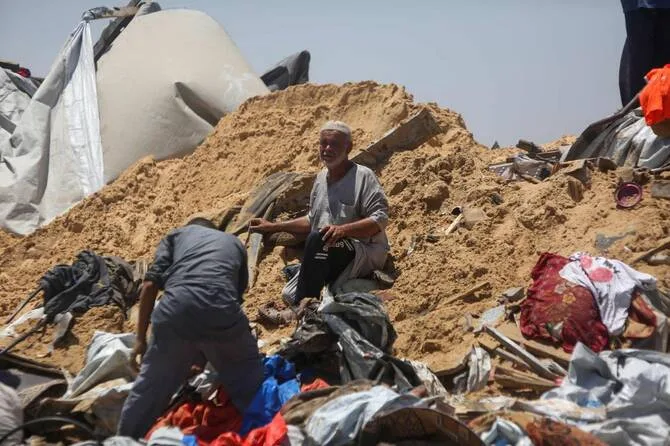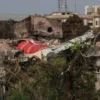Ceasefire negotiations between Hamas and Israel hung in the balance on Saturday, with both sides accusing the other of obstructing progress nearly a week into renewed efforts to end 21 months of war in Gaza.
A Palestinian source familiar with the indirect talks in Qatar told AFP that Israeli proposals to maintain a military presence in parts of Gaza were blocking a deal for a 60-day pause in hostilities.
On the Israeli side, a senior political official — speaking anonymously due to the sensitivity of the talks — accused Hamas of refusing to compromise and deliberately trying to derail the negotiations.
Meanwhile, the humanitarian toll continued to mount. Gaza’s civil defence agency reported more than 20 deaths across the territory on Saturday, including casualties from an overnight airstrike on an area sheltering displaced civilians.
“While we were sleeping, there was an explosion where two boys, a girl, and their mother were staying,” Bassam Hamdan told AFP after the strike in Gaza City. “We found them torn to pieces, their remains scattered,” he said.
In southern Gaza, bodies wrapped in plastic were brought to Nasser Hospital in Khan Yunis, while the wounded in Rafah arrived by donkey cart, stretchers, or were carried by hand.
In Tel Aviv, thousands rallied, urging the government to reach a hostage deal. “The window of opportunity is open now, and it won’t be for long,” said Eli Sharabi, a former hostage freed in February.
Both Hamas and Israel have indicated that 10 hostages taken during the October 7, 2023, attack that triggered the war could be released if a deal is reached. Israeli Prime Minister Benjamin Netanyahu has said that, if that happens, he would then be willing to discuss a broader ceasefire.
Sticking points
One Palestinian source said a key obstacle was Israel’s refusal to accept Hamas’s demand for a full military withdrawal from Gaza. Another source said mediators had paused discussions until U.S. President Donald Trump’s special envoy, Steve Witkoff, arrives in Doha.
According to the first source, Israel proposed to retain control over more than 40% of Gaza, confining hundreds of thousands of displaced Palestinians to a small area near Rafah on the Egyptian border.
“Hamas will not accept the Israeli maps, as they effectively endorse a reoccupation of nearly half of Gaza and reduce it to fragmented zones with no crossings or freedom of movement,” the source said.
Israeli media reported that new maps are expected to be presented on Sunday, citing an unnamed foreign official.
In response, a senior Israeli official claimed Hamas was responsible for the impasse, accusing the group of “sabotaging negotiations” and “clinging to rigid positions.”
“Israel has shown flexibility in these talks,” the official said. “Hamas has not.”
Human cost
The October 2023 Hamas attacks in Israel killed at least 1,219 people, most of them civilians, according to an AFP tally based on Israeli data. Of the 251 hostages taken, 49 remain in captivity, with the Israeli military saying 27 of them are presumed dead.
Since the war began, at least 57,882 Palestinians — mostly civilians — have been killed, according to Gaza’s Hamas-run health ministry.
The Israeli military said on Saturday it had struck “approximately 250 terrorist targets” across Gaza in the past 48 hours, including “over 35 Hamas terror sites” near Beit Hanoun in the north.
Two previous ceasefires — a week-long truce in late November 2023 and a two-month pause beginning mid-January 2024 — led to the release of 105 hostages in exchange for hundreds of Palestinian prisoners.
A Palestinian source noted that “some progress” had been made in recent discussions around prisoner releases and increased aid access to Gaza.
Netanyahu, under mounting domestic and international pressure to end the war, reiterated that disarming Hamas remains a precondition for any lasting ceasefire.
“Failure to do so,” he warned, “would leave Israel no choice but to act militarily.”
AFP


